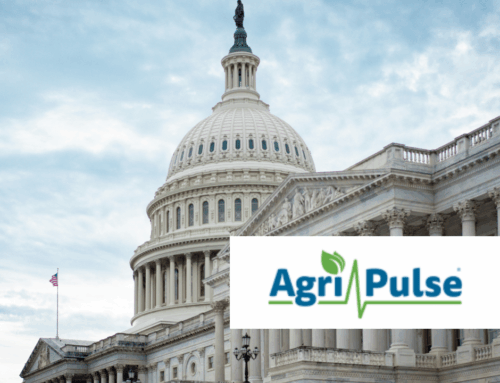As Congress continues to debate the budget reconciliation package, Taxpayers for Common Sense (TCS) recommends that the final package meets the following principles: (1) is fiscally responsible and in pursuit of legitimate public needs, (2) does not plant fiscally reckless future liabilities, (3) promotes resilience instead of dependence on federal spending, and (4) does more than provide dollars but also promotes change.
To this end, TCS urges Congress to take the following recommendations into consideration when finalizing policy changes and spending decisions in the agriculture section of the reconciliation package in particular, released by the House Rules Committee on Oct. 28, 2021. The full letter can be found here.
Does More Than Provide Dollars, Also Makes Change
- Increased investments in agriculture conservation programs can be a welcome first step toward achieving climate goals and other public benefits. However, simply increasing spending on agricultural conservation programs will fail to ensure that taxpayer dollars are spent wisely.
- Increased investments in programs such as the Environmental Quality Incentives Program (EQIP), Regional Conservation Partnership Program (RCPP), Agricultural Conservation Easement Program (ACEP), Conservation Stewardship Program (CSP), and Conservation Reserve Program (CRP) should be targeted and prioritized toward projects with the greatest return on taxpayer investment and toward conservation programs with best measurable and verifiable environmental and climate outcomes. Prioritizing conservation dollars toward climate resilience has already been proposed in the current package, and these efforts should be expanded to cover additional programs and include water and soil protection as well.
- While agricultural conservation programs have historically had more applicants than available funding, more climate and environmental outcomes can be achieved – with increased equity – if competitive bidding, targeting, regional prioritization, and other measures are employed to improve cost-effectiveness.
Is Fiscally Responsible and in Pursuit of Legitimate Public Needs
- Instead of cutting funding proposals, more taxpayer dollars should be directed toward cost-share programs that stretch federal dollars, in addition to public-serving research, ag extension, and technical assistance that assists diverse sets of producers while spending taxpayer dollars wisely.
- As has already been proposed, carve-outs for livestock funding in EQIP should be eliminated.
- Taxpayers should not be on the hook for subsidizing normal costs of doing business, such as manure management for Confined Animal Feeding Operations (CAFOs), particularly in EQIP.
Does Not Plant Fiscally Reckless Future Liabilities
- Proposals to spend more taxpayer dollars on the mature bioenergy industries – particularly those that increase instead of decrease climate risks – should be abandoned in favor of real, lasting climate investments.
- Proposals to spend $1 billion on the Biofuel Infrastructure and Agriculture Product Market Expansion program or similar investments in ethanol blender pumps that have already received more than $200 million in taxpayer subsidies should be abandoned. The auto industry is moving toward electric vehicles, and the mature biofuels industry does not need any more taxpayer handouts.
- Proposals to expand subsidies for special interests – particularly corn ethanol, soy biodiesel, and biomass projects – within the Rural Energy for America Program should be abandoned or otherwise investments will fail to reduce greenhouse gas emissions while creating additional climate and environmental liabilities.
- If increased spending in programs such as USDA’s Assistance for Rural Electric Cooperatives subsidizes energy sources that do more harm than good for the climate – such as woody biomass – then the reconciliation package will fail to improve climate outcomes.
Promotes Resilience Instead of Dependence on Federal Spending
- Additional conservation payments should be responsive to current need and reward producers for new agricultural conservation practices instead of paying for practices that producers have already employed or would implement with their own dollars.
- Increased adoption of climate mitigating conservation practices, including cover crops, should be encouraged by reforming financial disincentives to adoption. This includes ensuring the federal crop insurance program promotes the uptake of risk-reducing conservation practices that increase resilience instead of dependence on federal subsidies. Cover crops are already subsidized through ag conservation programs, and these efforts can be expanded to promote climate resilience in appropriate areas.
- Common sense regulations should be in place to ensure that taxpayer dollars are not going to producers and/or landowners who do not need federal assistance and those who do not actually farm. Payment limits and adjusted gross income limitations should be tightened, and Congress should work with USDA to rein in waste, fraud, and abuse in farm programs. Otherwise, federal programs will work at cross purposes with investments aiming to serve diverse sets of producers and increasing economic resilience for underserved producers.
Transparency
Finally, to improve transparency with the proposed increased investments in conservation programs, Congress should ensure that adequate funding is provided to measure, document, verify, and report on the environmental and climate outcomes of ag conservation programs. This information should be made public in an easily understandable and accessible manner on USDA’s website.










